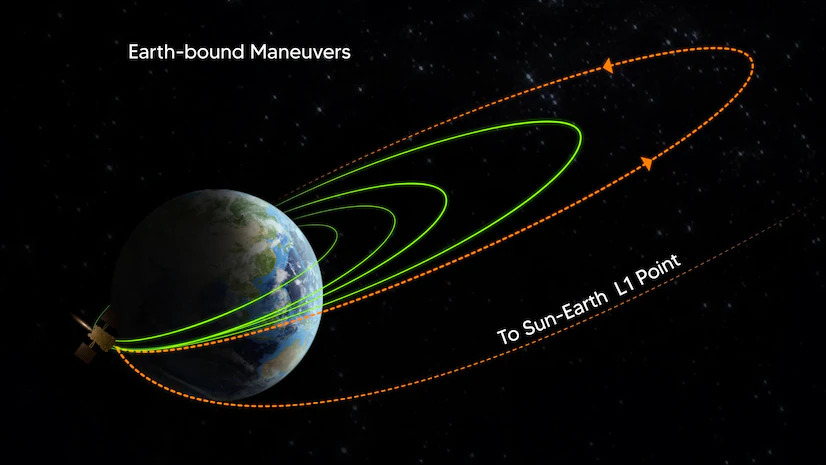This is the point in space where the earth’s and the sun’s gravitational pull equalises, keeping the spacecraft stable. From there, the vessel will also have an unhindered view of the sun. Its 1.5 million kilometre journey took 127 days to complete.
ISRO had been working on the mission for three years, and it had been on the radar for around fifteen years. Following the mission’s arrival at its target, ISRO declared that it had accomplished the precise placement and velocity and that it will now track the craft’s advancement and make any required adjustments. Thus far, the mission has proceeded well, and it is poised to begin transmitting data to Earth shortly.

Source: Business Standard
The mission, which is the first solar observatory in the nation, will investigate solar energy and plasma coronal mass ejections. Its purpose is to investigate various solar phenomena. The spacecraft is equipped with payloads that use electromagnetic detectors to explore the photosphere, chromosphere, and outermost layer of the sun. Since most solar occurrences have an impact on the planet and activities like satellite operations, the data will be very helpful.
The fact that so little is known about the sun makes the information particularly important. In addition to shedding light on the sun, the data will be useful for forecasting space weather. Researchers worldwide will have access to the mission’s data, according to ISRO Chairman S Somanath.
Source: WION
The successful mission has verified ISRO’s capability in difficult orbital manoeuvres and interplanetary missions. According to ISRO, the insertion of the ship into orbit required precise navigation and control. The first nation in Asia to launch a spacecraft into solar orbit is India. Probes have been launched into the solar system by the US and the European space agency.
The solar observatory missions of China and Japan are orbiting the planet. When an ISRO spacecraft touched down close to the moon’s south pole last year, history was made. It deployed a satellite last week to investigate celestial bodies like blackholes.
ISRO has several large-scale projects planned. In the near future, expeditions to Mars and Venus as well as manned and unmanned space combat are planned. Congratulations to the scientists and engineers of ISRO on their accomplishments, which establish India as a significant space power.
What do you think about this? Comment below.

